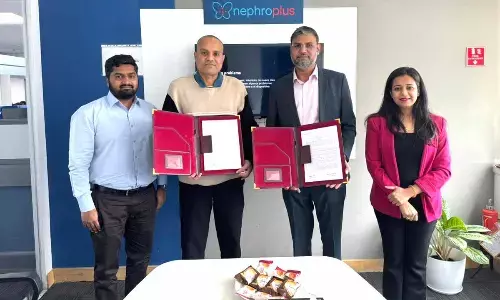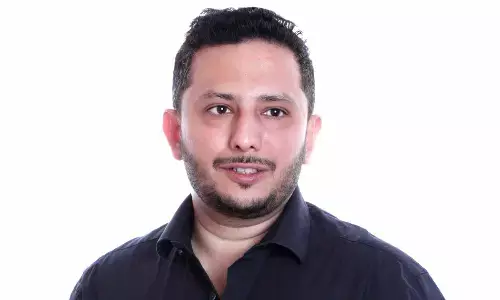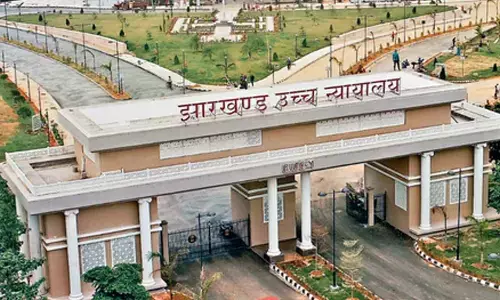Breached agreement divides State
Breached agreement divides State, Madabhushi Sridhar, Parliament’s power. The day of Gentlemen’s Agreement (February 20) was day of misconduct of ‘gentlemen’ who never agreed on ethics in the house of elders Rajya Sabha and elders in political parties too.
The Gentlemen’s Agreement (GA) that was violated letter and spirit stood as the example of betrayal and on the same day Rajya Sabha approved the Bill to give birth to Telangana on February 20, 2014 in New Delhi, but not before a prolonged struggle for 58 years. It is a strange coincidence indeed. On February 20, 1956 the elderly leaders of Congress from Andhra and Telangana signed certain safeguards for Telangana called ‘Gentlemen’s Agreement’, which means that the terms should be complied with like gentlemen without creating necessity to enforce them. From the day one, GA was greeted with breach by right from the Neelam Sanjiva Reddy, the first CM to Kiran Reddy, the last CM. It was neither agreement nor were there any gentlemen. Such agreements are generally not enforceable like contracts, but to be treated as word of honour. It turned out to be a documentary proof to cheating the people of Telangana, which caused irreparable loss and not compensated. Giving package to Seemandhra is welcome but leaving out the new born state Telangana without compensation or special package is not correct. Some of the BJP’s proposed amendments were really aimed at doing justice to Telangana also, but did not come through. They sought recognition of an irrigation project in Telangana as national project on par with Polavaram to be financed by the Centre, package to backward districts of Telangana like that in Andhra, etc.
The day of Gentlemen’s Agreement (February 20) was day of misconduct of ‘gentlemen’ who never agreed on ethics in the house of elders Rajya Sabha and elders in political parties too. They documented unethical, improper and most disrespectful behaviour highly unbecoming of Rajya Sabha members. The saga of struggle over 58 years saw the gentlemen disappear and agreement replaced by treacherous arrangements.
The Congress Government at Centre struggled to get the AP Reorganisation Bill passed as BJP’s Venkaiah Naidu resisted it for four hours with multiple (38) Amendments besides threatening with a mandatory Constitutional Amendment. Telugu Desam MPs in their vociferous opposition to division, aiming at gallery to show off support to their brethren in Seemandhra, indirectly helped the person in chair to avoid counting of votes and resort to voice vote. Instead of honestly opposing the Bill, they tried to physically snatch the papers of the bill, to tear it off and stall the proceedings.
With cheap show by Congress MPs in Lok Sabha, lack of dignity exhibited by so-called ‘elder’ members in Rajya Sabha, the Telangana Bill went through anxious movements in the last three days in Parliament from February 18 to 20, 2014.
Every political party was counting each vote in microscope and seat in macro understanding. The Telangana Bill was thus dancing between ‘yesavit’ and ‘nosavit’ amidst chaotic behaviour of legislators whether at Hyderabad or in Parliament, whether elders or youngers. The Congress managers have consistently shown their grit and determination in hammering out differences with main opposition while K Chandrasekhar Rao, president of TRS, who spearheaded the movement, has played his cards well by meeting key leaders. His efforts neutralised the-behind-the-screen-confabulations of Chandrababu Naidu.
The principal opposition BJP tried to be ‘legal’, ‘constitutional’ and benevolent to the other region and made every effort to show sincerity that it was not stalling the Telangana Bill and reiterated its full commitment to division of State. Seemandhra politicians made yet another serious effort to halt the process even after Lok Sabha passed the Bill. The attack on the offices of BJP in Seemandhra districts changed the conduct of their leaders in Delhi.
The anti-Telangana lobbyists made last minute effort to make Hyderabad a Union Territory for at least a couple of years or cut Rayalaseema into two pieces and attach one piece of two districts with Telangana calling it ‘Rayala Telangana” a meaningless expression and useless exercise. Both were rejected by TRS and Telangana Congress MPs very effectively. After BJP’s amendments were agreed to, it was a smooth sailing for the treasury bench on February 19 to get the Bill passed in Lok Sabha. Congress contended that it was improper for BJP to raise new amendments to Bill in Rajya Sabha, when it was approved in Lok Sabha without them. To get their new demands conceded BJP leaders have brought the ‘constitutional hitch’, if any, saying that to give powers on subject of Law and Order to the Governor, it is essential to amend the Constitution, if not the Supreme Court could strike it down any time. It was one up-man-ship competition between Parliamentary parties of Lok Sabha and Rajya Sabha.
Parliament’s power
The Government contended that the Parliament has power to make law on any subject under State list (ie List II of Schedule 7 of the Constitution) as per Article 246(4) which says: The Parliament has power to make laws with respect to any matter for any part of the territory of India not included (in a State) notwithstanding that such matter is a matter enumerated in the State List.
In New Delhi Municipal Committee vs the State of Andhra Pradesh, the Supreme Court decided on August 1, 1975: “…On the subsidiary question, whether the expression "State" in clause (4) of Article 246 of the Constitution included the Union Territory of Delhi, we found that prior to its amendment by the Constitution (Seventh Amendment) Act, 1956, clause (4) of Article 246 of the Constitution empowered Parliament to make laws with respect to any matter for any part of the territory of India not included in Part A, or Part B of the First Schedule: that under the scheme of the Constitution, prior to the said Act, Union Territories did not figure in the Constitution. Clause (4) of Art 246 as then worded, therefore, empowered Parliament to make laws with respect to the territories of India comprised among others in Part C States;…”
Earlier Delhi High Court observed in the State of Andhra Pradesh v New Delhi Municipal Committee on March 14, 1975 (AIR 1975 Delhi 223) (Justices Shanker and Anand) that by virtue of Article 246(4) of the Constitution the power of Parliament to make laws extends not only to the subjects enumerated in the Union List and the concurrent List but also to matters included in the State List in relation to any part of the territory of India not included in a State as also in respect of residuary subjects by virtue of Art 248 of the Constitution of India”.
Parliament has every power to make law pertaining to any subject even if it is subject under State List, which was specifically stated in 246(4) of the Constitution and it was upheld by the Supreme Court in many judgments. If the Governor is given a responsibility of overseeing the security of citizen for which he could convene meeting of the Chief Ministers and other stakeholders, there is nothing unconstitutional, unless and until it overtakes the powers of State of Telangana within State List.
The Congress party also alleged demolishing the credibility of BJP that it was Chandrababu Naidu who influenced BJP through their close friend Venkaiah Naidu. If the Governor is given extra responsibility to secure the lives, through Bill itself, there should not be any problem. But if the Centre exercises the power which it does not have, to deny the status of full-fledged state to Telangana, it would be violative of Article 14 - rule of equality - by making Telangana a 29th state different from other 28 states.
If they do so, the Supreme Court has every authority in its review power to reject that part as unconstitutional and might allow or not the rest of law to continue.
More than amendments and Constitutional issues raised by the BJP in Rajya Sabha, the demand for economic package for Seemandhra with special status was an easy demand for the Congress to accept. There should be a caution in this package that the money should not be hijacked by the four rich and advanced districts such as Krishna, Guntur and two Godavari Districts but to be spending for development of undeveloped areas like North Andhra and Rayalaseema. In its struggle for liberation from unreasonable political dominance by unbrotherly cousins, the Telangana achieved its main objective of separate state inclusive of Hyderabad, though lost on peripheral fronts like no economic package, which Telangana is entitled to.
(The writer, Information Commissioner, New Delhi, can be reached
at [email protected] )
















